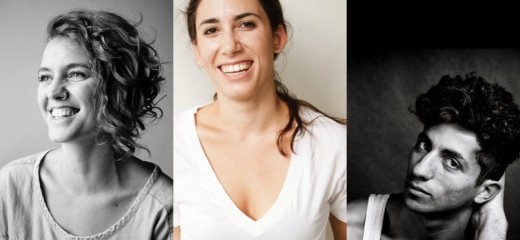
Empowered Responses to Occupation from Palestinian Contemporary Dance
by Jonathan Stein
Do you know choreographers, anywhere, where 30-40% of their performances get cancelled each year? Where the cancellations are not for the challenges artists in the U.S. might be familiar with: finding space, time or funding, but rather because of strikes, travel permissions and visas denied, police check-points closed and killings of residents near the performance venue?
This is the experience of contemporary dance artists in the occupied Palestine of the West Bank, as related recently by Samar Haddad King, Palestinian-American founding artistic director since 2005 of Yaa Samar! Dance Theatre. King lives in Palestine and New York, and her English can sometimes be Arab-inflected or, in a joking mode, with a touch of the Alabama where she was born of a Palestine refugee mother. She also co-directs, with Jorge Crecis, min tala, a pan-Arab dance theater company, whose members, she relates, cannot find one accessible and welcoming Middle Eastern country that they can call their home.
Presented by Nicole Bindler* and Jewish Voice for Peace, King was joined for a weekend of presentations and workshops at The Whole Shebang by her associate artistic director and company dancer, Brooklyn-based Zoe Rabinowitz. Also present was West Bank-born independent dancer, Khaled Barghouthi, currently teaching at CUNY’s Lehman College while planning to attend NYU’s Tisch School of Dance next year.
For King, “Art is not above politics.” Making art and creating a Palestinian culture that incorporates live, contemporary dance by and for Palestinians living in this fragmented, occupied country, is constantly affected by the political environment. Does she cancel a planned performance because of a nearby “martyr killing” so as not to be disrespectful to the family, or decide to perform to avoid the impact for dancers whose families rely on their earnings. If a program is cancelled because of local protests or a curfew, even the reason for the cancellation can’t be disclosed on Facebook for fear of Israeli intelligence viewing the posting as fomenting the protest. These and other stories brought to my mind the plight of artists in the Soviet Union or China.
A 2011 work, bound, addressed this political environment. Shown as a trailer video, bound’s three movable walls were adjusted in various positions by the dancers to simulate walls of buildings, barriers within Palestine, and computer screens, often the only access to the outside worlds of family and friends. Indeed, King related that she was forced to direct her company in the creation of bound via Skype in 2011 from her residence in Palestine, because her husband was denied a visa to be in the U.S. This multi-media work shown at the LaGuardia Performing Arts Center in New York has been aptly described by Sarah Hart as more than a condemnation of imposed walls and boundaries, a “transcendence of boundaries” which can give rise to “opportunities…the unexpected beauty that can arise when moving things adapt to hindrance.”
King and Rabinowitz, who has danced with the company since 2005, addressed their recent research into Darwinian evolution theories as relevant to the occupation by Israel: ideas of “separation creating an isolated habitat” and “adaptation for survival.” (An exercise at King’s weekend workshop turned the rock-paper-scissors game into a reflexive fight/flight exercise with our neurons in comic disarray.) Rabinowitz also offered solo expressions of these ideas as a work in progress, Against a Hard Surface. This production will premiere at the Ramallah Contemporary Dance Festival in April 2017, performed by Yaa Samar! Dance Theatre with Palestinian theater director Amir Nizar Zuabi.
Barghouthi’s awakening to performance came as a teenager walking four to five hours each way to the cultural center of Ramallah from his small, conservative village of Kobar. After going on to pursue dance studies in Belgium, he became the first Palestinian from occupied territories to study dance among international choreographers and dancers in Europe. His improvisation composition workshop revealed not only a talented dancer but also a thoughtful teacher.
Barghouthi describes “researching my identity as a Palestinian,” and asks, “When aware of one’s social and political space, where can we create a new space in a country under occupation?” He presented two solos as works in progress, one casting a nostalgic feel yet punctuated by torso barrel rolls in the air and bone-crunching falls directly onto his knees. A second solo, Intifada#3, which he said was about the Third Intifada, was created this year. It began with an almost five minute long period of darkness marked by a surround of menacing sounds of helicopters approaching and leaving.
When Bargouthi emerged in the now lighted studio space, his energized dance with facial and head gestures and body postures suggesting vogueing appeared as a defiant affirmation of his individuality in a brutal environment. (The following day he described a memory from 2006 of Israeli helicopters landing near his village school, disembarking commando soldiers, reportedly in training, shooting three young fellow students in their legs—youth who were not being sought as wanted persons.)
With walls, physical and metaphorical, menacing and imminent, in our own country, these artists’ passions and courage are a model that we could well draw inspiration from.
*Bindler has written extensively on Palestinian dance, culture and politics in thINKingDANCE.
Khaled Bargouthi, Samar Haddad King and Zoe Rabinowitz , The Whole Shebang, 1813 South 11 Street, Nov. 18-19. www.ysdt.org, www.mintala.org, www.zoerabinowitz.com.
Yaa Samar! Dance Theatre will present a lecture and visual presentation described as an arts and education programming to unite Palestinian youth communities entitled, “Redefining & Reclaiming Space in Conflict Zones,” at Columbia University, Knox Hall #208, 606 West 122 St., NY, on Nov. 29, 6 pm.
By Jonathan Stein
November 29, 2016

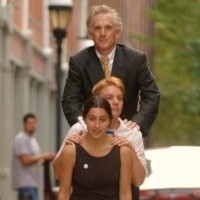
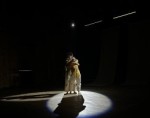
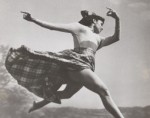
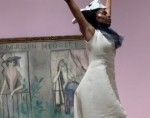


.png)


